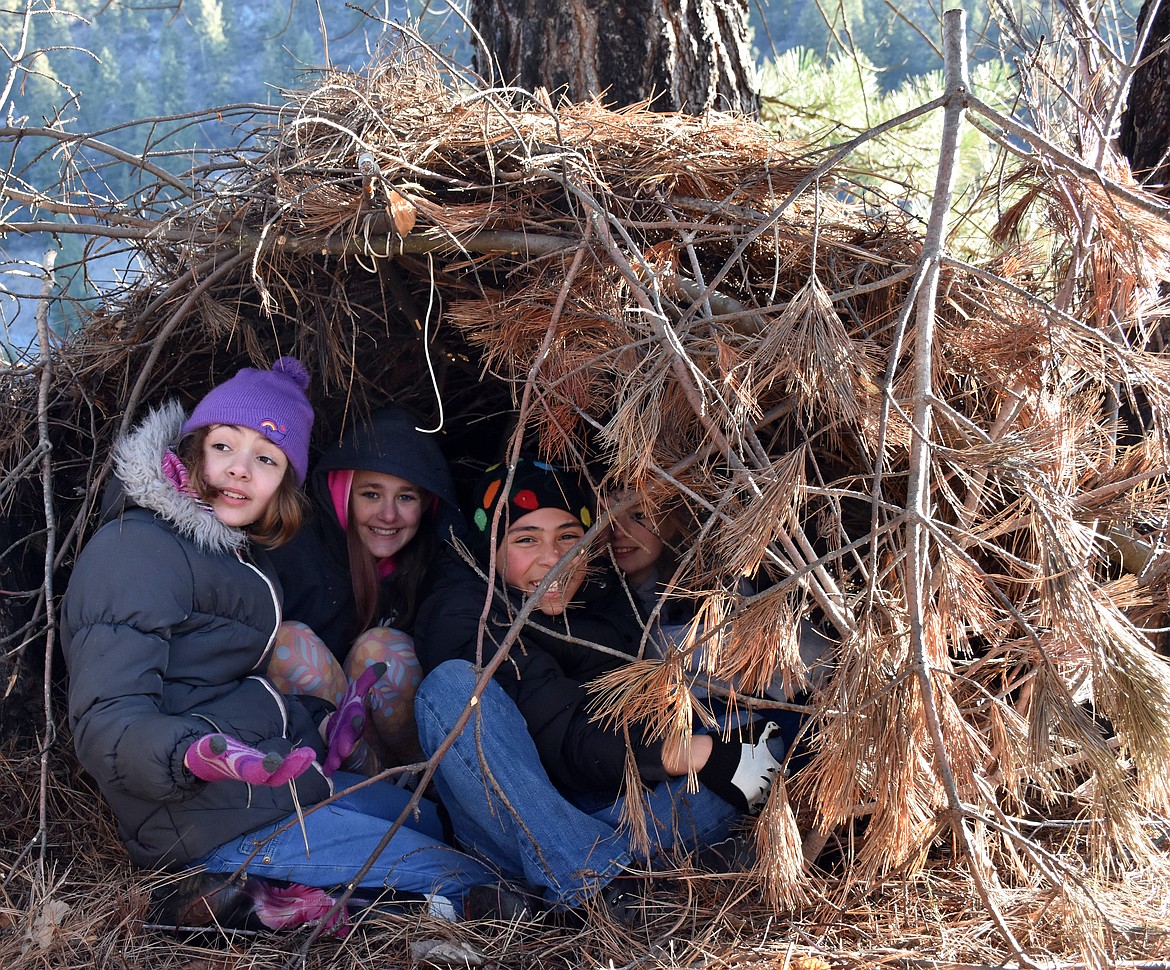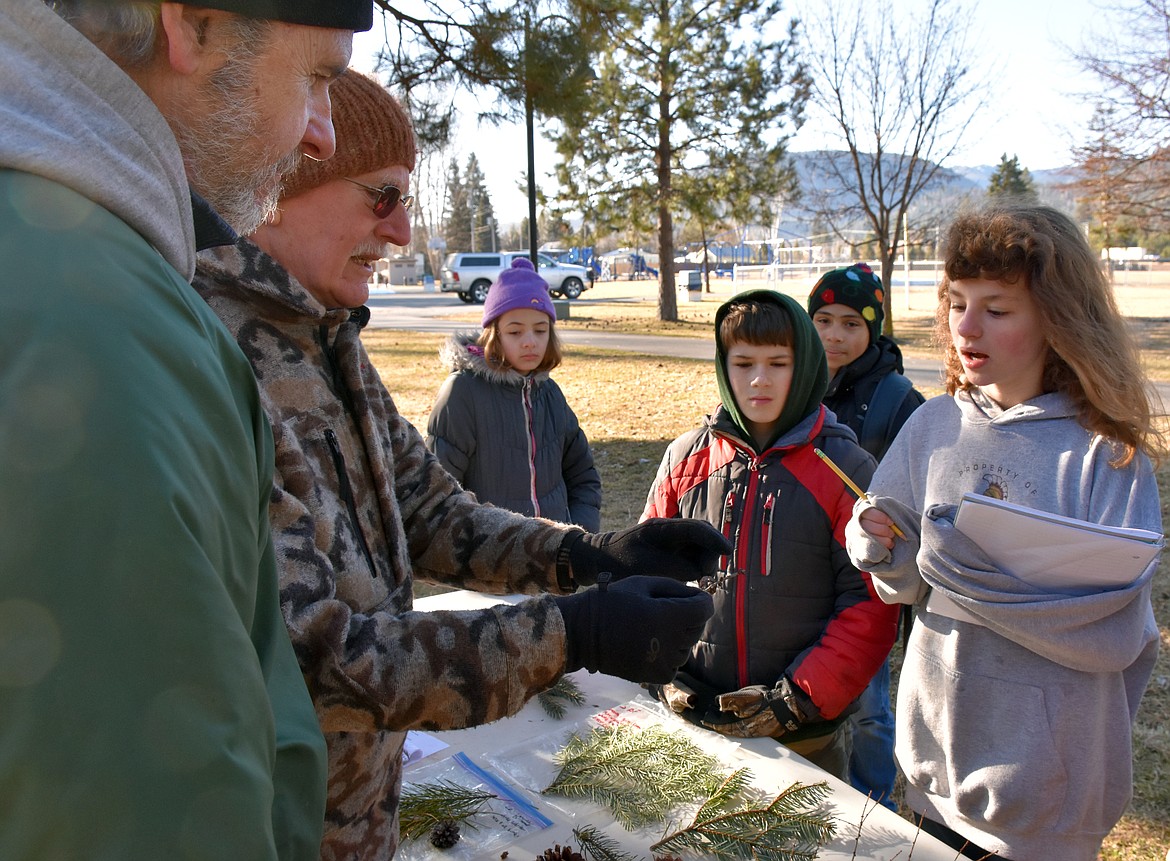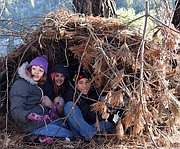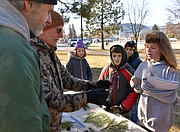Local students trade electronics for the outdoors
A Canada goose in full-throated “honk” passed overhead and every single student immediately looked skyward.
They stood gawking at the goose Friday morning along the Kootenai River in Troy’s Roosevelt Park. The followed the bird until they flew out of sight
Sandy Compton, program coordinator for Friends of Scotchman Peaks Wilderness, observed the rapt attention of the sixth graders and smiled.
“We try to get kids outside where they’re not always looking at their phones,” he said.
Compton, along with Henry Jorden, another staff member for Friends of Scotchman Peaks Wilderness, and several volunteers were hosting a Winter Tracks outdoors education event for two sixth grade classes from W. F. Morrison Elementary School.
It wasn’t really winter weather. And the dearth of snow reduced the odds of encountering wildlife tracks.
Yet the students appeared to be engrossed as they circulated through four separate stations: Animal adaptation; wilderness survival; tree identification and “leave no trace.”
Gene Reckin, a retired science teacher, asked students at his station a series of questions about animals and mammals. Several students, including Trevor Guinard, answered correctly and confidently.
Chris Reichert and Russ Gautreaux walked students through identifying several species of trees common to the region.
Karie Lee, who has spent weeks in the mountains equipped only with primitive gear, talked to students about how to survive in the backcountry if circumstances yield a crisis. Among other things, she taught the sixth graders how to construct a “debris hut” for an emergency shelter.
Jane Jacoby, conservation director for the Yaak Valley Forest Council, shared with students the principles and practices of “leave no trace.”
Friends of Scotchman Peaks Wilderness was formed in January 2005 to advocate for wilderness designation for the rugged and spectacular region west of the Cabinet Mountains Wilderness.
The proposed Scotchman Peaks Wilderness spans the Montana-Idaho border and provides the backdrop for the communities of Clark Fork, Hope and Sandpoint.
Friends of Scotchman Peaks began offering Winter Tracks classes six years ago as one way to build connections in Idaho and Montana.
The nonprofit will offer 11 classes this year. Participants will include students in Libby, Troy and elsewhere.
Compton said that the Winter Tracks program is a valuable tool for outreach but said it’s not intended to recruit wilderness advocates.
“We don’t proselytize,” he said. “We just show up and offer our classes and teach kids how to do things outside.”
He said the nonprofit believes the path to wilderness designation for Scotchman Peaks involves connection and collaboration with people who live and work in the region.
“If you want to be part of the neighborhood, you have to be good neighbors,” Compton said.
Troy sixth grade teachers Louise Roberts and Al Arpin expressed enthusiasm for the Winter Tracks program.
Arpin said it is important to get the students “outside the four walls” of school to introduce them to experiences that add tangible meaning to what are often just concepts in school.





